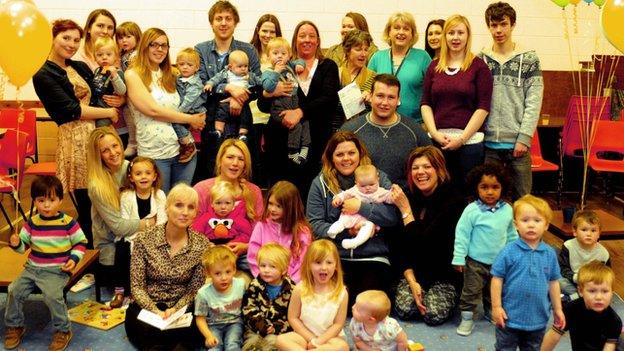Bristol's Children of 90s study in its biggest data collection yet
- Published
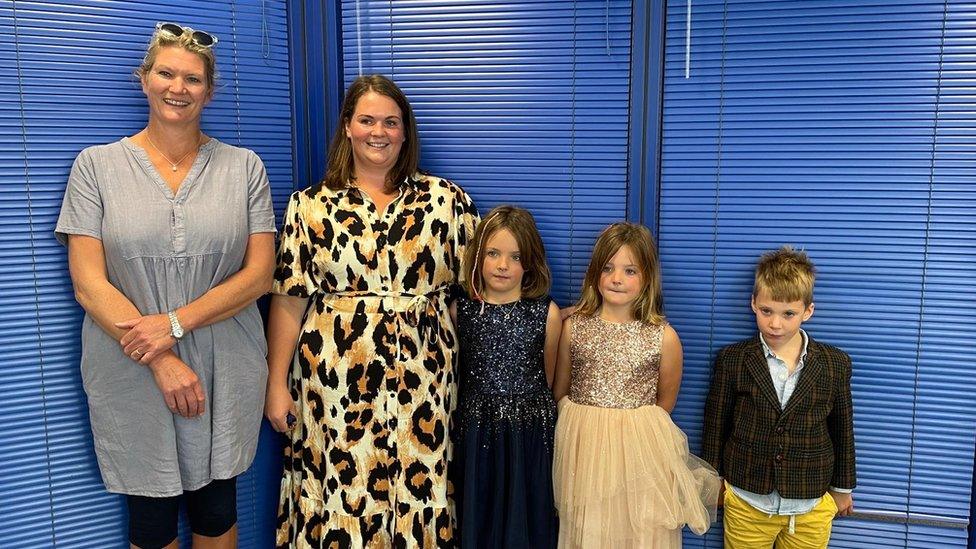
Tory, her daughter, Nancy, and grandchildren, Xanthe, Darcy and Dexter, all attended the clinic together
A health study following the lives of babies born in the 1990s has started its "biggest data collection" yet, with 20,000 people invited to take part.
The Children of the 90s study began in Bristol 30 years ago taking information and data from families across the city.
Now, for the first time, three generations from the families have been invited to a full in-person clinic.
Principal investigator, Nic Timpson, said: "This is an exciting moment for Children of the 90s."
While the three generations are already signed up to the study, and complete regular questionnaires and have records taken at intervals, the large in-person clinic appointments have, up until now, only been for the original study children.
This is the first time all three will take part in multiple assessments of their health and wellbeing such as height and weight, lung function, blood pressure, liver and bone scans as well as vision and hearing measures for some.
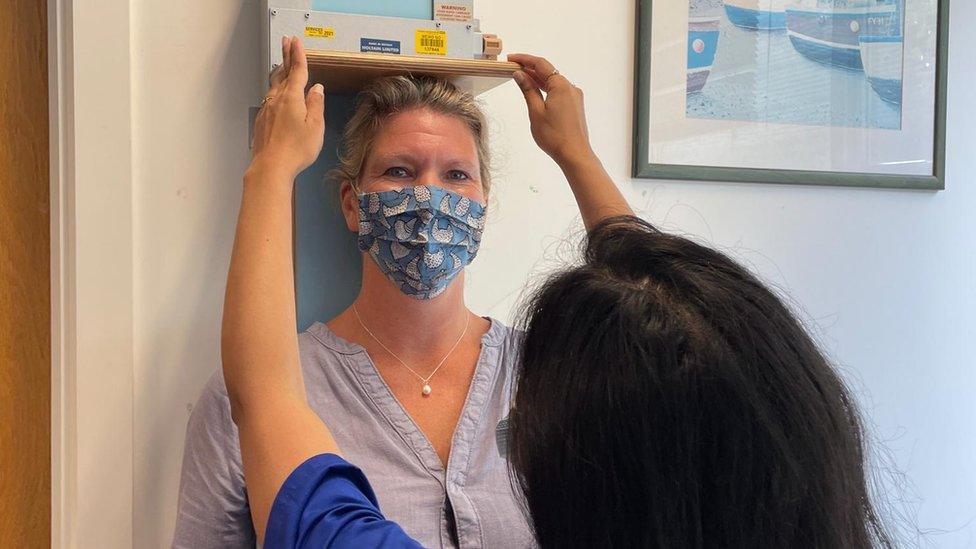
Participants will take part in multiple assessments of their health and wellbeing
Based at the University of Bristol, the health study recruited 14,000 pregnant women between 1991 and 1992.
Tory signed up to the study while pregnant with her daughter, Nancy.
Now a grandmother, Tory, her daughter and grandchildren, Xanthe, Darcy and Dexter, have all attended the clinic together.
Tory said: "To be sitting here 30 years later with it still going on, sat here with grandchildren, is quite extraordinary."
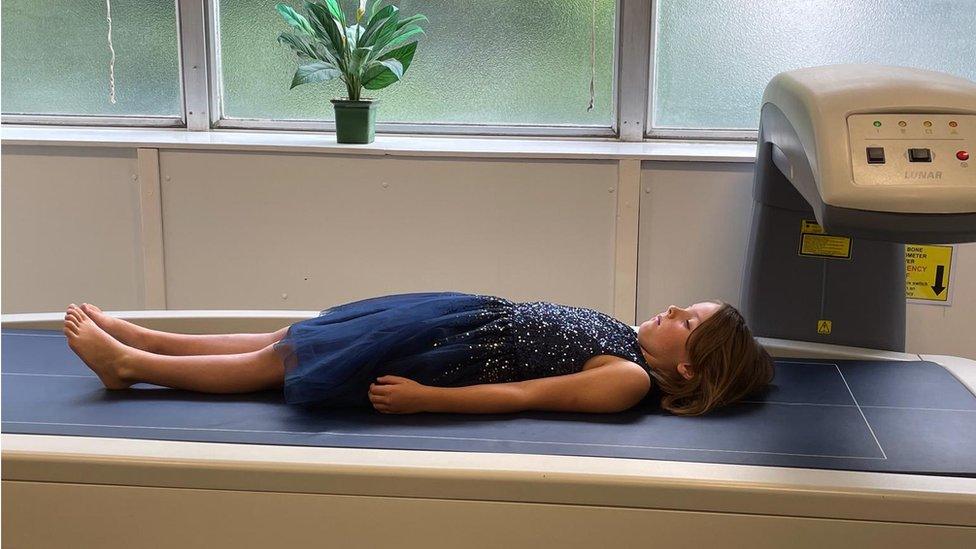
It is the first time three generations have been invited to a full in-person clinic
A DXA scan will measure fat, lean mass and bone density, while a new GlycoCheck test involves placing a small microscope under a participant's tongue to look at the architecture of vascular tissue.
An additional questionnaire will also ask participants questions such as how happy they are on that day and what their religious beliefs are.
From this data, researchers hope to understand the relationship between lifestyle behaviours, health and wellbeing.
Mr Timpson said: "We're just about to go through a stage now where our original babies are 30-years-old, they are entering a new chapter of their lives, they have new families, new social circumstances and we need to capture that.
"All of the information we collect is set up in order to provide great research opportunities, and those research opportunities will generate data and findings that then shape the way medical practice and policy relevant to social factors and other things is actually deployed."

Follow BBC West on Facebook, external, Twitter, external and Instagram, external. Send your story ideas to: bristol@bbc.co.uk , external
Related topics
- Published28 April 2021
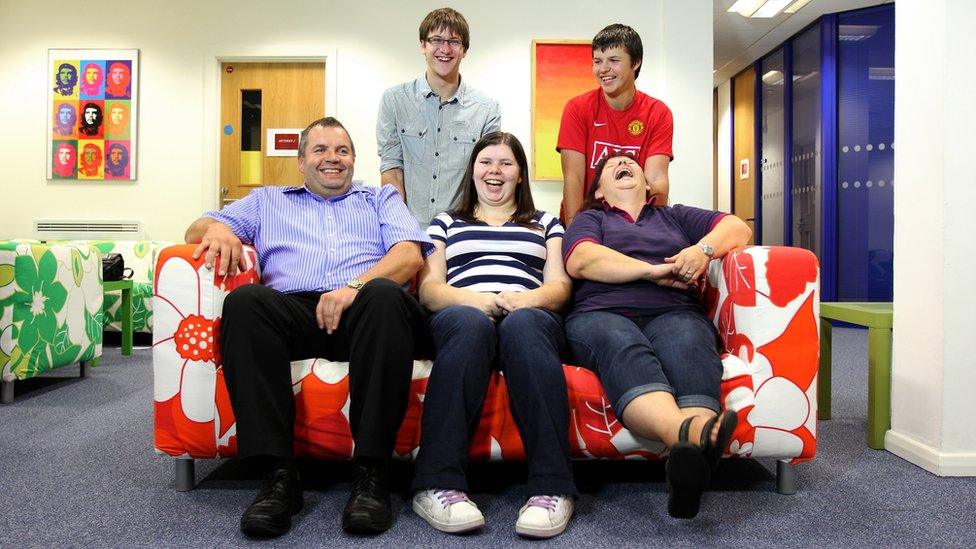
- Published28 April 2021
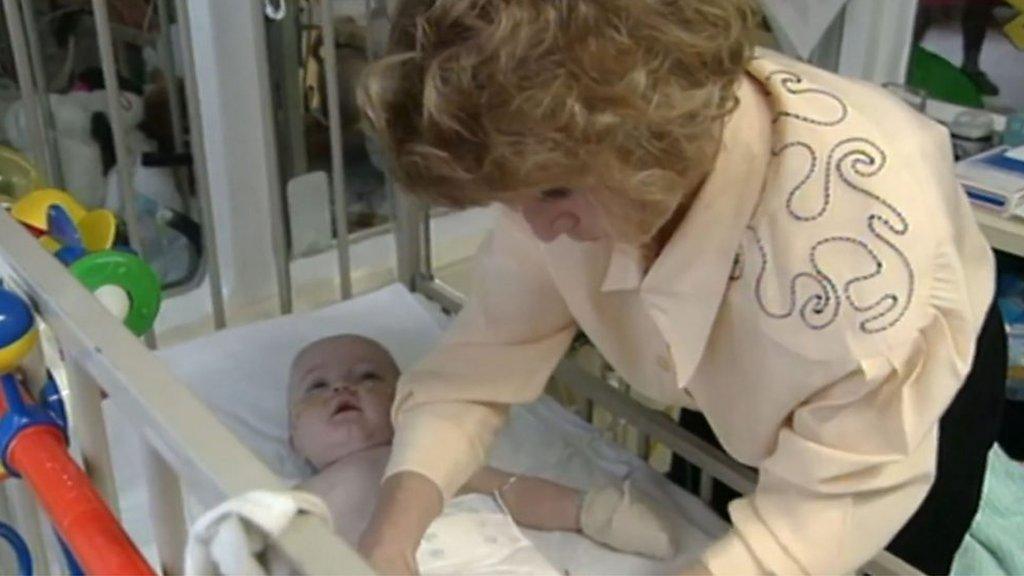
- Published18 February 2021
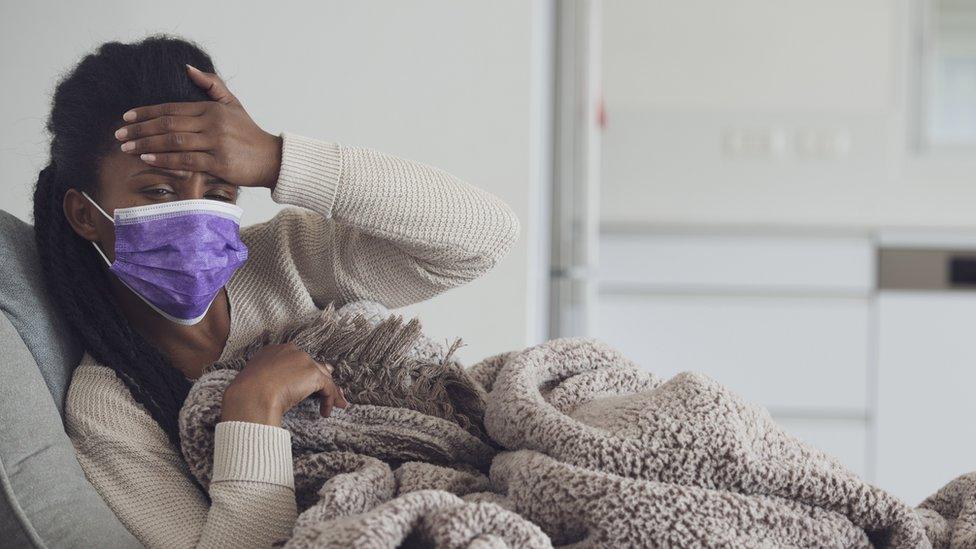
- Published21 October 2019
